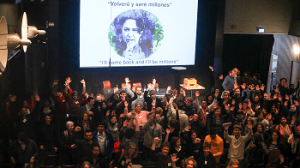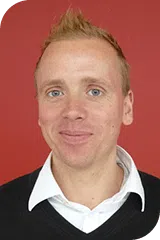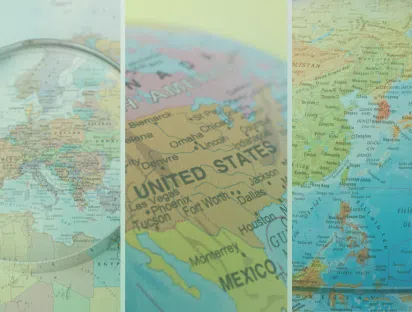
Snapshot from the final entitle conference.
End of March 2016 the final conference of the ENTITLE project in the field of International Political Ecology took place in Stockholm. ENTITLE was an EU-funded Initial Training Network on Political Ecology financed under the Marie-Curie Action of the 7th European Framework Programme of Research and Development.
Before joining ESSCA, Gabriel Weber contributed to this project as Marie-Curie Post Doc fellow working at ENT, an environmental research organization in Vilanova i la Geltrú close to Barcelona. At the concluding conference, which was given the title « Undisciplined Environments », he presented two short papers:
- The political ecology of socio-environmental conflicts in Germany (1990-2014)
- The Green Economy Zeitgeist and Environmental Conflicts – The Political Ecology of Germany’s Energy Transition
The first paper deals with urban transformations and more specifically with re-municipalisation (re-nationalisation) of energy and water supply in Germany (Hamburg & Berlin). The second paper is on coal mining conflicts and other environmental conflicts related to the Green Economy in Germany. As Gabriel reports,
‘these two papers draw on the voluntary work and data collection I had previously carried out for the EJOLT project. During my Post Doc in Barcelona but also afterwards I was involved in this project on environmental justice and sustainability. I have filled the map of environmental justice with environmental conflicts in Germany ). As part of my data collection I also visited a climate protection camp and spoke with opponents of coal-fired power stations in Germany. This map is used by several actors of society such as journalists, firms, students, and NGO’s.’

‘The event allowed me to see my colleagues and friends from both projects ENTITLE and EJOLT such as Joan Martinez-Alier from Universitat Autònoma de Barcelona. Above all, I was glad to spend two days with my supervisor at ENT and good friend Ignasi Puig-Ventosa. Furthermore, it was a great experience to meet all ENTITLE Fellows and Mentors during a grading ceremony dinner, which was held at the conference. During these and other meetings I spoke with some colleagues about possible future collaborations. Among other things, I agreed to take the leadership for the EJOLT map on environmental justice Germany.’
For further information on the event and project, please feel free to consult the conference website or enquire directly with Gabriel.




